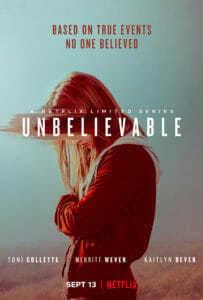Randal Rauser's Blog, page 70
October 12, 2019
An Example of Self-Referential Defeat
This morning, somebody commented on my 2016 article “On Scientific (and Philosophical and Theological) Ignorance.” “Just some guy” opined:
“Your philosophy counter-‘argument’ is flawed because philosophy doesn’t mean anything if it can’t be demonstrated in reality.” (source)
Alas, “Just some guy” seems not to be aware that the statement “philosophy doesn’t mean anything if it can’t be demonstrated in reality” is itself a philosophical statement. (It sure ain’t a scientific one!)
Once he comes to terms with that fact, hopefully, he can “demonstrate in reality” his claim.
The post An Example of Self-Referential Defeat appeared first on Randal Rauser.
October 11, 2019
Are young earth creationists the most faithful Bible readers?
This is the question I debated with David Johnson of the Skeptics and Seekers Podcast. Johnson, an atheist, argued that young-earth creationists are most faithful to the biblical text. I argued quite to the contrary. Which of us is correct? You can find out by reading our two articles and listening to the podcast. It was a lot of fun to record. If it’s half as much fun to listen, you’ll have a great time.
The post Are young earth creationists the most faithful Bible readers? appeared first on Randal Rauser.
October 9, 2019
Pepe Le Pew Stinks: The Sexual Violence of Looney Tunes in a #MeToo Age
I grew up watching Saturday morning cartoons, the highlight of which was always one and a half hours of Looney Tunes: Bugs Bunny, Road Runner, Daffy Duck, Yosemite Sam, and the rest. Alas, Looney Tunes have not fared well in our age with many critics raising concerns about the violence of these zany cartoon shorts. And while it is easy to be dismissive of “political correctness”, it is eye-opening to consider just how violent some of those cartoons really are. In particular, the gun violence and gun suicides should make any parent uncomfortable.
Today, however, I found myself contemplating another disturbing expression of violence in Looney Tunes, in this case, the sexually aggressive stalking behavior of everybody’s favorite amorous skunk, Pepe Le Pew:
 Pepe conforms to the familiar “stalking is love” trope in which the persistent would-be beau who refuses to take no for an answer is viewed favorably and is often rewarded for his persistence.
Pepe conforms to the familiar “stalking is love” trope in which the persistent would-be beau who refuses to take no for an answer is viewed favorably and is often rewarded for his persistence.
According to Julia Lipmann, the stalking tropes in romantic comedies can serve to normalize abusive and threatening behavior as part of romance. It isn’t a stretch to suppose that the attitudes which may bloom in one’s teens and twenties might be seeded in one’s childhood.
Look at the terror on the cat who is desperate to flee Pepe. Her face conveys abject horror. And yet, Pepe’s aggressive actions — the relentless pursuit and unwelcome groping/sexual assault — are played for laughs. This just isn’t funny.
Today, the Disney classic Song of the South is recognized as racist and has been rightly consigned to the cultural hinterland. Increasingly, Looney Tunes are facing a similar exile, first for the ubiquitous violence and gun violence, in particular. I would argue that the sexual violence and aggression of the Pepe cartoons has earned them a similar ignominious fate. While I used to roll my eyes at the critics of these old cartoons as the pc police, I now realize that the critics are right: Pepe Le Pew stinks.
The post Pepe Le Pew Stinks: The Sexual Violence of Looney Tunes in a #MeToo Age appeared first on Randal Rauser.
October 8, 2019
Your Media is Biased
It doesn’t matter whether you get your information from Rush Limbaugh or NPR, Fox News or the BBC, Al Jazeera or RT: your media intake is, to some degree, biased. Of course, I suspect most of us know this intuitively, but we always need to be reminded because the very biases that lead us to select our media diet are apt to downplay the biases present in that media diet itself.
Here’s a simple example. Yesterday, CNN published the following article. To be sure, the article was an opinion piece rather than a piece of journalism proper. Nonetheless, the range of opinions that are countenanced as legitimate by a media organization is itself indicative of its bias.
Anyway, on with the discussion. The article is titled “Firing Virginia teacher who misgendered student was the right call.” The story is about a teacher who is fired for refusing to use a young person’s preferred pronouns because those pronouns do not align with the child’s sex and the teacher considered the request to be an affront to his values. Personally, I don’t agree with that teacher in that I would consider it a matter of hospitality to meet that child’s request. However, my opinion is not my concern here.
Nor, for that matter do I presume to criticize the writer for expressing an opinion since the article in question is labeled as an opinion piece. Instead, my only concern is to point out that the opinion, and the way it is argued, is based on a set of prior commitments that constitute bias, and the clearer we are on the presence and nature of that bias the better off we shall be.
To illustrate the bias, we can consider the following passage:
“And now he’s [the teacher] suing, with the help of the ADF Center for Academic Freedom. The ADF is a right-wing group with extreme views on gay and trans issues, which the Southern Poverty Law Center has characterized as ‘one of the most influential groups informing the [Trump] administration’s attack on LGBT rights.'”
Note that the opinion writer labels the “ADF” as “a right-wing group with extreme views”. Right-wing? Extreme? Well, according to whom? The Southern Poverty Law Center, that’s who!
Well, okay, but here’s the thing: the Southern Poverty Law Center has itself often been labeled as a left-wing group with extreme views. By whom, you ask? Not surprisingly, that judgment generally comes from right-wing commentators.
Do these charges cancel each other out? That’s a question for another day. But at least we know this much: that opinion writer is clearly writing for a particular constituency, one that has already decided which voices are the lodestar of reasonable ethical discourse (e.g. the Southern Poverty Law Center) and which are extreme and out on a wing (e.g. the ADF).
Needless to say, if your starting point differs from hers, the subsequent reasoning likely will, as well. And the more often that we can work down to those fundamental differences in our starting points, the more likely we are to hope to resolve the disagreements created by them.
The post Your Media is Biased appeared first on Randal Rauser.
October 6, 2019
Hamfisted Heresy Hunters
Calvinist blogger Steve Hays has a long list of people he needs to monitor on a regular basis and I’m apparently on that list. Every few weeks, he seems to make a point of commenting on one of my articles or tweets. I wrote a reply to him last week and of course, he needed to reply. But in this case, I can’t help but respond to his hamfisted heresy hunting analysis.
The background for this discussion is the fact that I pointed out that young earth creationists who insist their beliefs are necessary for faithful Christian witness thereby place an unnecessary stumbling block in the way for Christians. Here is Hays’ stinging reply:
“Just to put things in context, part of Rauser’s schtick is to say we shouldn’t create unnecessary stumbling blocks that drive people away from Christianity or deter them from considering it in the first place. And it just so happens that the list of unnecessary stumbling blocks always lines up with what progressive theologian Randal Rauser doesn’t believe in. What a coincidence! And by yet another amazing coincidence, he never classifies his progressive theology or ideology as an unnecessary stumbling block, even though progressive theology and ideology constitute a turnoff for many people.” (source)
There are two points in Hays’ comments. Let’s take them in turn.
To begin with, I have never claimed that my “progressive theology or ideology” (whatever that is supposed to be) should be considered a necessary stumbling block for Christian witness. On the contrary, I’ve repeatedly defended alternative views (e.g. Roman Catholicism, open theism, and Hays’ own Calvinism) as fully consistent with mere Christianity and faithful Christian witness. Given that Hays regularly monitors me and thus he must be aware of what I’ve written, I’m forced to conclude that either we label him an egregiously inept reader or a liar.
Now let’s turn to the first bit. Hays suggests that it is somehow problematic that my beliefs about which stumbling blocks are unnecessary just happens to line up with what I believe Christianity to be. So, for example, I believe that young earth creationism is false and so I conclude that it is unnecessary.
Er, okay, but so what? Hays thinks he made some incisive observation here but in actuality, it is wholly trivial. It’s trivially the case that each individual will distinguish necessary from unnecessary stumbling blocks based on their beliefs about which doctrines are essential to mere Christianity (i.e. the dogmas) and which are non-essential (i.e. theologoumena; adiaphora).
It takes a particularly hamfisted heresy hunter, somebody like Steve Hays, to take a trivial and universally applicable fact and try to spin it into an indictable offense for his perceived enemies. Sadly, Hays is so focused on attacking others that he has not only sacrificed critical nuance and charity in reading his enemies but he has even lost sight of basic consistency and self-awareness.
I recognize that Hays seems to feed off conflict and will likely use this article as more fuel to write articles against his enemies. I can’t change that fact, so instead, I offer this commentary as a salutary warning for the rest of us lest we too fall into the trap of becoming a hamfisted heresy hunter.
The post Hamfisted Heresy Hunters appeared first on Randal Rauser.
October 4, 2019
My Quick Thoughts on the New Joker Movie
 The new movie Joker has been polarizing among critics. Most seem to praise it as a masterpiece but some see it as irresponsible because it’s cinematic power is not properly channeled by a moral framework and could spill into society with a burst of incel violence.
The new movie Joker has been polarizing among critics. Most seem to praise it as a masterpiece but some see it as irresponsible because it’s cinematic power is not properly channeled by a moral framework and could spill into society with a burst of incel violence.
That seems like a strange objection to me. I don’t think directors are obliged to select their stories or the way those stories are told based on the potential for various special interest groups to interpret and apply those stories in errant or antisocial ways.
If we applied such principles to cinema generally it would wreak havoc on the story-telling process. Another great example is Gus van Zant’s school shooting movie Elephant. The film portrays how a school shooting unfolds but it doesn’t take a moral stand against it. But who says that is the obligation of the director? Why can’t a story be ambiguous? Why can’t we trust audiences with the story? Who says the creator must bear the weight of how his/her art is received?
Bottom line: the moralizing is misguided; I plan to watch Joker.
The only question: will Phoenix dethrone Ledger?
The post My Quick Thoughts on the New Joker Movie appeared first on Randal Rauser.
September 29, 2019
On Richard Dawkins and His Many Gods
 I just set out to tweet on Richard Dawkins’ new book Outgrowing God. My quick comment became several tweets and I decided to repost those tweets here. And so, without further ado:
I just set out to tweet on Richard Dawkins’ new book Outgrowing God. My quick comment became several tweets and I decided to repost those tweets here. And so, without further ado:
The first chapter of Richard Dawkins’ new anti-religious screed is titled “So many gods!” And it points out that — wait for it — people throughout history have had many different views on the nature and existence of divine being and relationship to that being.
That much is uncontentious. The problem is that Dawkins then seems to conclude that this somehow undermines a person today from reasonably holding a particular set of beliefs about divine being and our relationship to it, something like Christianity, for example.
I’ll make just two responses to this insufferably inane line of reasoning. First, if this historical pluralism undermines the basis for anyone to hold beliefs about particular divine beings, that undermines the skeptical atheist as surely as the Christian. After all, affirming a state of affairs in which no divine being exists is as much a belief in need of justification against a historic plurality of opinion as any other.
Second, this historical plurality is not limited to beliefs about divine beings. It also applies to beliefs about ethics and human nature, politics and aesthetics, and of course, science and nature. In short, if a historic plurality of opinion undermines one’s present justification for holding a belief, and historic plurality of opinion is ubiquitous, as it surely is, then we have a recipe for radical skepticism. Needless to say, that skepticism would, in turn, undermine the very basis for confidence in the argument itself given the historic plurality of epistemological opinion.
Perhaps it is time for Mr. Dawkins to retire from his anti-religious shenanigans. With arguments like this, he is not doing his legacy any favors.
The post On Richard Dawkins and His Many Gods appeared first on Randal Rauser.
“Unbelievable”: True Crime Redeemed
 I’m not one of those people who is prone to binge-watch the latest big series on Netflix. But lo and behold, this past weekend my wife and I were mesmerized by the critically acclaimed new cop-investigation drama Unbelievable. The eight-episode show is based on an extraordinary and awful real-life case of a young woman who, after reporting a rape, was accused by the police of false reporting, and who was later vindicated due to the hard work of investigators in another state.
I’m not one of those people who is prone to binge-watch the latest big series on Netflix. But lo and behold, this past weekend my wife and I were mesmerized by the critically acclaimed new cop-investigation drama Unbelievable. The eight-episode show is based on an extraordinary and awful real-life case of a young woman who, after reporting a rape, was accused by the police of false reporting, and who was later vindicated due to the hard work of investigators in another state.
I first became aware of this terrible story when it was featured a few years ago on an episode of NPR’s This American Life. (You can listen to that episode here.) Unbelievable is powerful viewing with strong performances by Toni Collette and Merritt Wever as the lead investigators and Kaityn Dever as the young victim survivor.
To its credit, Unbelievable places the spotlight on the survivors of sexual assault. While the show does not linger on disturbing images of rape and violence, it provides ample jarring flashbacks to convey the horror without becoming gratuitous. (On that point, it contrasts markedly with the notorious long-form rape scene in the 1988 film The Accused.)
In my opinion, one of the most powerful moments of the show comes in a comparison-contrast drawn between the first and final episodes. The first episode includes a relatively detailed and disturbing depiction of the “processing” of a rape victim in the hospital. It is painful to watch young Marie (Dever) being forced to undergo further indignities. Herein is a reminder of the continued need to humanize a system of medicine and justice which can all-too-often depersonalize and thereby hurt the very people it purports to help.
The final episode features a sequence that clearly is intended to compare and contrast with Marie’s experience, though now it is the rapist being processed into the prison system. At one point, he stands completely naked in the cell, and while this too is awkward viewing at best, the symbolism is powerful: this man’s wicked crimes are now laid bare for the world to see, there is no more hiding, and now he can taste a modicum of the horrific humiliation that he visited upon others.
As a Christian, one of the most noteworthy aspects of the show came with the powerful performance of Wever playing Detective Karen Duvall. You see, Duvall is portrayed as an evangelical Christian. But rather than ignoring any faith element or depicting Duvall with Hollywood’s go-to hypocritical and holier-than-thou stereotypes, the show portrays her as wise and compassionate.
Duvall’s faith comes up at several points in the series. There is a warm scene of the family singing in church together. And when another cop speaks harshly about God in this broken world, Duvall shares her own struggles with the problem of evil and suffering like a modern Job. In short, she isn’t put off by hard questions and angry protestations. Instead, she recognizes them for what they are: the fertile soil in which a genuine worldly-wise faith can grow.
One of the most intriguing scenes comes when Duvall and her de facto partner Rasmussen (Collette) visit a victim’s home and speak with the victim’s mother. She explains that her daughter is out for a (non-Christian) religious festival though she was raised Episcopalian. Duvall astutely realizes that the daughter has since joined the modern druidic movement and that her mother is responding defensively out of embarrassment. In a masterclass of disarming communication, Duvall speaks respectfully of the daughter’s current religious faith and politely asks the mother to let her daughter know they came by.
In another scene, Duvall and Rasmussen are talking candidly about how each manages to continue when they are forced to confront such violence and wickedness in the world. Rasmussen candidly states her admiration for Duvall’s faith while saying, tongue-in-cheek, that she primarily deals with all the stress by drinking alcohol. But even if the exchange is somewhat humorous, the deeper message remains. It is a dark world out there, but Duvall manages to navigate it with compassion, wisdom, and love.
All too often, the true-crime genre can become base and exploitive. Unbelievable breaks the mold with a riveting and redemptive drama that focuses on the toll created by sexual violence punctuated by the surprising light of goodness, integrity, and a young detective’s living Christian faith.
The post “Unbelievable”: True Crime Redeemed appeared first on Randal Rauser.
September 26, 2019
A Podcast Conversation of Dizzying Scope
I recently was a guest on the podcast Soapbox Redemption with Andrew Murtagh. This was a lively conversation of dizzying scope. Check it out here.
The post A Podcast Conversation of Dizzying Scope appeared first on Randal Rauser.
September 25, 2019
Is it wrong to call Donald Trump a pig?
Two days ago, Donald Trump mocked 16-year old climate activist Greta Thunberg.
Yesterday, I offered this tweeted reply:
Randal: Is anybody surprised that the pig decided to mock a 16-year-old climate activist? What really disgusts me is the 154,000 + likes. Trump’s a psychopath, but what’s their excuse? (Source)
Predictably, my tweet received the criticism that I was “disrespecting” the office:
Brent: Our President certainly has major issues, but you should be respectful of the office and not use derogatory terms.
I’m not sure whether Brent was taking issue with my calling Trump a pig or a psychopath. But an objection to the latter is misguided at best, because I use the term not as an insult, but rather to express my belief that Trump qualifies as a clinically diagnosable psychopath according to Robert Hare’s psychopathy checklist.
What about calling Trump a pig? In common usage, a “pig” is a person of piggish character, i.e. one who evinces characteristics like greediness, selfishness, vulgarity, and/or uncouthness. By that definition, Trump is a pig if anybody is.
So now, what should we think of the claim that it is dishonoring of an office to call out a piggish officeholder as piggish?
In a subsequent tweet, I noted that “pope” is an office of highest honor in the Catholic Church. One of the most notorious officeholders of the seat of Rome in church history is Alexander VI, a debauched fornicator who engaged in baldly corrupt and nepotistic practices. To call Alexander VI a pig is merely to state a fact. To suggest that doing so is somehow dishonoring of the office of pope is nothing short of bizarre. If anything, it is the refusal to denounce a corrupt and piggish officeholder for failing to honor the office that is dishonoring of the office.
And so it is in the present case. Trump is a pig who regularly denigrates and shames his office, and to refuse to denounce him as such, let alone to call out those who do as dishonoring the office, is itself dishonoring of the office under the guise of false sanctimony.
One more thing: another commenter named “Martjin” challenged me by tweeting back Bible verse references. Given that I find this illustrative of a common problem of prooftexting among Christian conservatives, I want to close by relaying our exchange:
Martjin: Matthew 5:21-22
Randal: You’re proof-texting. Are you aware that Jesus denounced his critics as whitewashed tombs and a brood of vipers? Have you ever considered the imprecations of the Psalmist, Paul, or Jude?
Martjin: Acts 23:4
Randal: Are you attempting to derive the principle “It is never appropriate to use disparaging language of an office holder if the office is prestigious because doing so will dishonor the office” from that verse? If so, you need to explain your reasoning or it’s just another prooftext.
To conclude, the child who dared call the emperor naked did not dishonor the emperorship. Rather, he merely called out an emperor who has himself nakedly dishonored his esteemed role.
Likewise, the person who calls Trump a pig does not dishonor the presidency. Rather, he merely calls out a president who has piggishly dishonored his esteemed role.
The post Is it wrong to call Donald Trump a pig? appeared first on Randal Rauser.




